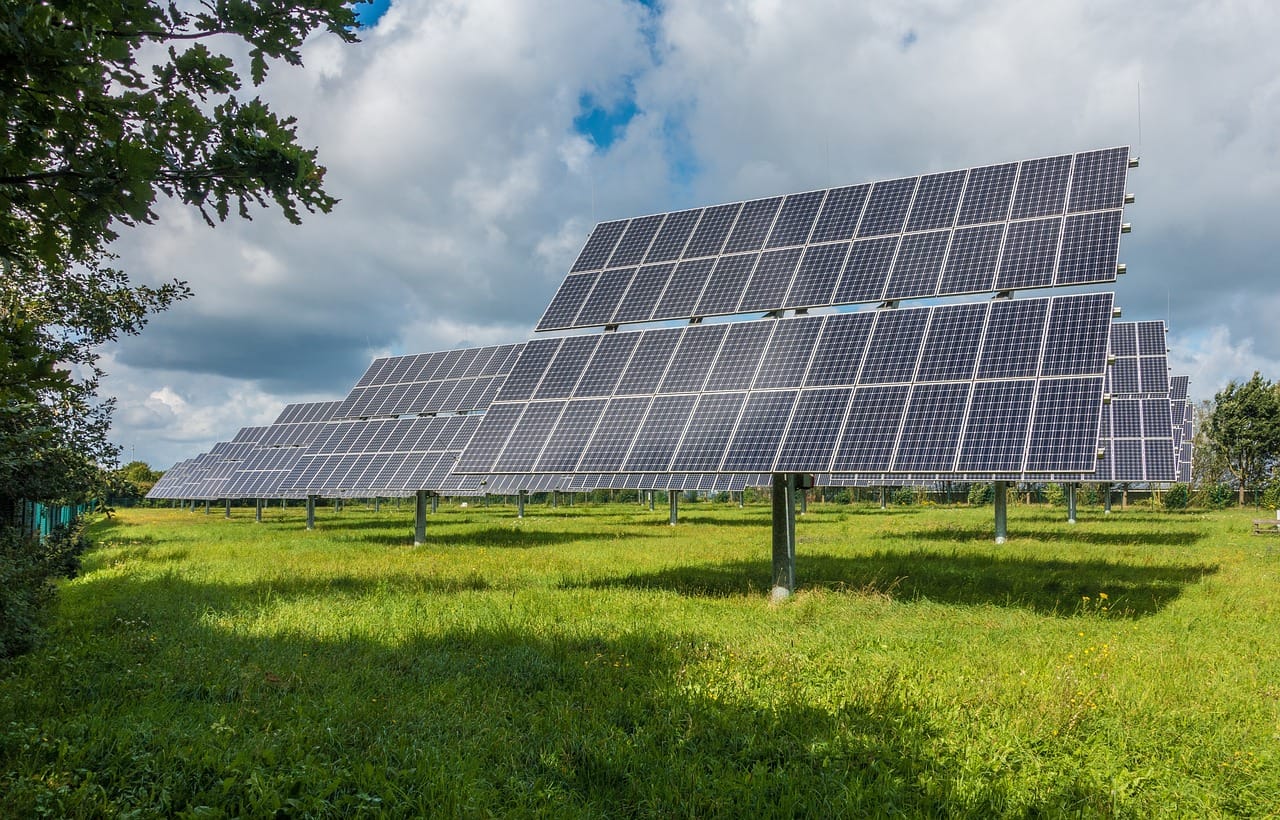Renewable Energy's Role in Economic Development
Explore the transformative impact of renewable energy on economic development. Learn how sustainable solutions drive growth and innovation

Understanding renewable energy and its impact on economic development
Renewable energy, often referred to as clean energy, is derived from natural resources that are replenished on a human timescale, such as sunlight, wind, rain, tides, waves, and geothermal heat. The utilization of renewable energy sources has gained significant attention globally due to its potential to address environmental concerns and promote economic development. The shift towards renewable energy is driven by the need to reduce greenhouse gas emissions, enhance energy security, and create sustainable economic growth. As the world grapples with the challenges of climate change and limited fossil fuel reserves, the importance of understanding and embracing renewable energy solutions becomes increasingly evident.
The adoption of renewable energy technologies has the potential to revolutionize the global energy sector, leading to a more sustainable and economically viable future. By harnessing the power of renewable resources, countries can reduce their reliance on imported fossil fuels, thus enhancing energy security and reducing the vulnerability of their economies to volatile international energy markets. Furthermore, the development of renewable energy infrastructure and industries can create new job opportunities and stimulate economic growth, particularly in regions with abundant renewable resources. As the world transitions towards a low-carbon economy, understanding the economic implications of renewable energy becomes crucial for policymakers, businesses, and investors.
The economic benefits of embracing renewable energy solutions

The economic benefits of embracing renewable energy solutions are multifaceted, encompassing various aspects of economic development, energy security, and environmental sustainability. One of the primary economic advantages of renewable energy lies in its potential to reduce energy costs over the long term. Unlike conventional fossil fuels, which are subject to price volatility and supply chain disruptions, renewable energy sources offer stable and predictable energy prices, thus providing cost certainty for businesses and consumers. Additionally, the deployment of renewable energy technologies can lead to a more diversified energy mix, reducing the risks associated with overreliance on a single energy source.
Moreover, the promotion of renewable energy can spur innovation and technological advancement, creating new opportunities for investment and economic growth. As businesses and research institutions invest in developing and improving renewable energy technologies, the resulting innovations can drive productivity gains and job creation across various industries. Furthermore, the widespread adoption of renewable energy solutions can contribute to the development of a more resilient and decentralized energy infrastructure, reducing the vulnerability of energy systems to natural disasters and geopolitical disruptions. By understanding the economic benefits of embracing renewable energy, societies can position themselves to thrive in a rapidly evolving global energy landscape.
Sustainable growth through green energy
Sustainable economic growth is contingent upon the responsible utilization of natural resources and the mitigation of environmental risks. Green energy, derived from renewable sources, plays a pivotal role in driving sustainable growth by providing a clean and abundant alternative to traditional fossil fuels. The transition towards green energy not only reduces the carbon footprint of energy production but also fosters the development of energy-efficient technologies and practices. By prioritizing green energy solutions, societies can mitigate the adverse impacts of climate change, reduce air and water pollution, and preserve natural ecosystems, thus laying the foundation for long-term economic prosperity.
The role of solar power and wind energy in economic diversification
Solar power and wind energy have emerged as frontrunners in the global transition towards renewable energy, offering abundant and accessible sources of clean power. The widespread deployment of solar photovoltaic (PV) systems and wind turbines has transformed the energy landscape, enabling countries to diversify their energy portfolios and reduce their reliance on fossil fuels. From a socioeconomic perspective, the proliferation of solar and wind energy infrastructure has created new opportunities for investment, manufacturing, and job creation, driving economic diversification and resilience. By harnessing the power of solar and wind energy, countries can bolster their energy independence, reduce carbon emissions, and stimulate local economies through the development of renewable energy supply chains.
Energy transition and its economic impact
The ongoing transition from conventional energy sources to renewable energy represents a monumental shift with profound economic implications. As the global energy landscape evolves, economies are presented with the opportunity to adapt and capitalize on the growing demand for clean energy solutions. The energy transition entails not only the deployment of renewable energy technologies but also the modernization of energy infrastructure, the development of energy storage systems, and the integration of smart grid technologies. These transformative changes have the potential to create new markets, attract investments, and catalyze economic development while addressing environmental imperatives.
Clean energy policies and their contribution to economic sustainability

The formulation and implementation of clean energy policies play a pivotal role in shaping the trajectory of renewable energy adoption and its economic impact. Governments and regulatory bodies can influence the uptake of renewable energy through a combination of policy instruments, including feed-in tariffs, renewable portfolio standards, tax incentives, and carbon pricing mechanisms. By providing a supportive policy framework, governments can stimulate private sector investments in renewable energy projects, foster innovation, and create a conducive environment for sustainable economic development. Additionally, clean energy policies can drive the transition towards energy-efficient technologies and practices, leading to long-term cost savings and enhanced economic competitiveness.
Renewable technology and its influence on global energy markets
The rapid advancement of renewable energy technologies has reshaped global energy markets, challenging the dominance of traditional fossil fuel-based energy systems. The increasing affordability and scalability of renewable technologies, such as solar panels, wind turbines, and energy storage solutions, have disrupted the dynamics of energy production and consumption. As a result, renewable energy has emerged as a compelling and economically viable alternative to conventional energy sources, attracting investments and reshaping the geopolitical landscape. By understanding the influence of renewable technology on global energy markets, stakeholders can navigate the shifting dynamics of energy trade, resource geopolitics, and market competition, thus positioning themselves to capitalize on the opportunities presented by the clean energy transition.
Creating green jobs and promoting energy security through renewable energy
The widespread adoption of renewable energy solutions not only contributes to environmental sustainability and economic development but also creates new employment opportunities and enhances energy security. The renewable energy sector encompasses a diverse range of job roles, including engineers, technicians, project developers, researchers, and manufacturing workers, thus offering a pathway to meaningful and sustainable employment. By investing in renewable energy infrastructure and workforce training, countries can foster the growth of a skilled labor force, stimulate local economies, and reduce dependence on imported energy resources. Furthermore, the decentralized nature of renewable energy systems enhances energy security by reducing the reliance on centralized power generation and transmission infrastructure, thereby mitigating the risks associated with energy supply disruptions and geopolitical uncertainties.
Investment opportunities in renewables and their economic returns
The transition towards renewable energy presents compelling investment opportunities across various segments of the energy value chain. From project development and financing to equipment manufacturing and energy services, the renewable energy sector offers diverse avenues for investors seeking sustainable and financially rewarding opportunities. Renewable energy projects, such as solar farms, wind parks, and biomass facilities, provide long-term revenue streams and attractive returns on investment, supported by stable cash flows and the potential for asset appreciation. Moreover, the integration of renewable energy into the broader energy landscape can unlock synergies with energy efficiency initiatives, grid modernization projects, and demand-side management strategies, creating a holistic investment ecosystem that fosters economic growth and resilience.
Conclusion: The economic case for embracing renewable energy
In conclusion, the economic case for embracing renewable energy is compelling, driven by the potential to achieve sustainable economic growth, enhance energy security, and mitigate the impacts of climate change. By understanding the economic benefits of renewable energy solutions, countries, businesses, and investors can capitalize on the opportunities presented by the clean energy transition, fostering innovation, job creation, and long-term economic prosperity. As the world navigates the complexities of the global energy transition, embracing renewable energy is not only an environmental imperative but also a strategic pathway towards building resilient, competitive, and sustainable economies. By prioritizing renewable energy solutions, societies can drive positive economic transformation while safeguarding the planet for future generations.
CTA: Embrace the economic benefits of renewable energy and drive positive change for the future. Join the transition towards sustainable and financially rewarding renewable energy investments today




